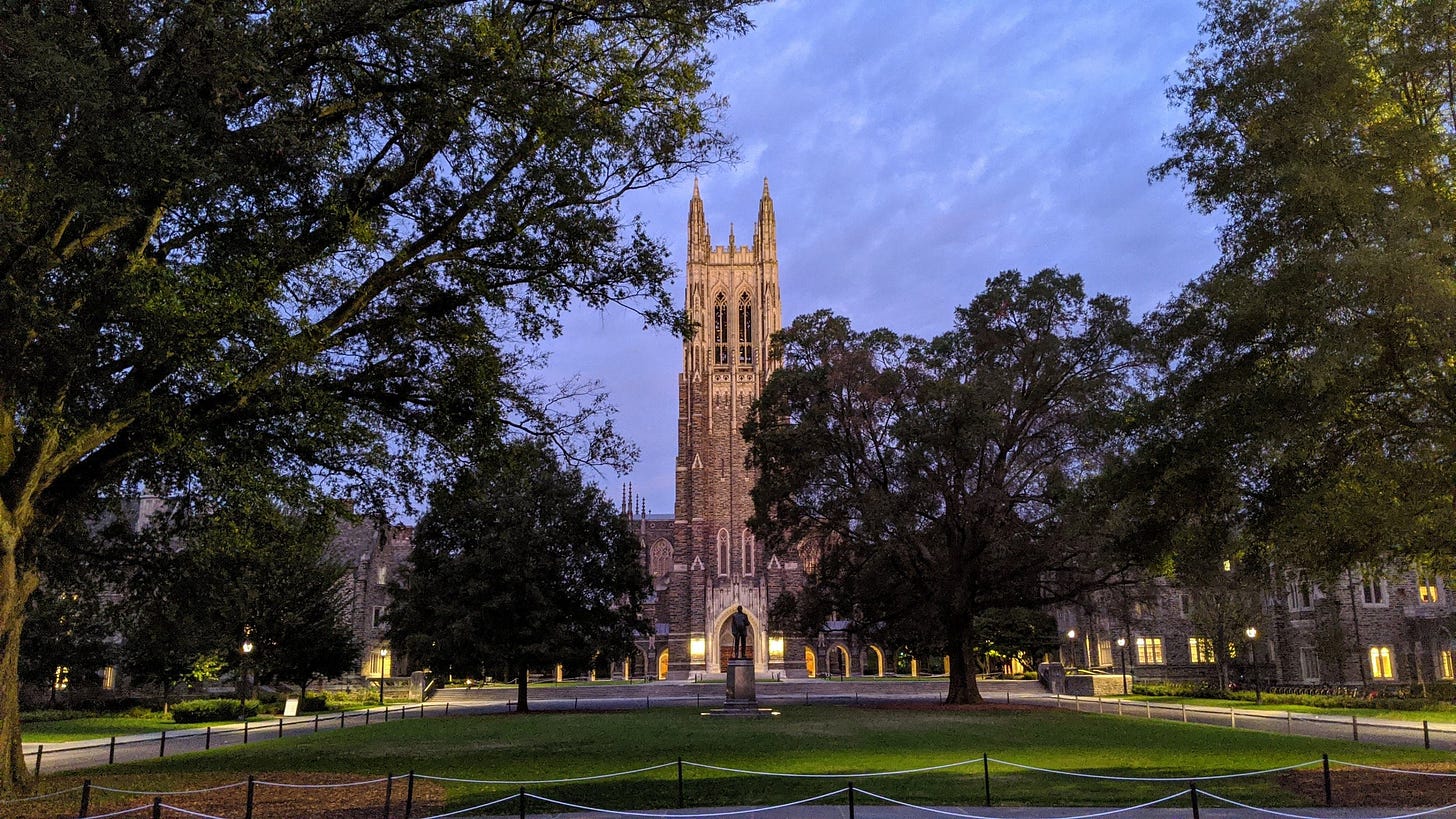GENERATION NEXT | Inspiring the Next Wave of Urbanists
Duke students have created a hub out of nothing—and so can you.
Written By Vaneesha Patel
Photo by Chuck Givens
I started my sophomore year at Duke University in the Fall of 2020, the early days of the pandemic. All of my classes, extracurriculars, meetings, and events occurred online. During that time, my interest in urbanism led me on a search through Duke's cyberspace to find outlets for this passion, but I found no classes, no clubs, and no organizations that touched on urban studies. But I kept pressing, and my search paid off.
While scrolling through Facebook, I came across a post from a former Duke student encouraging students curious about urban studies to connect with her. I immediately reached out, fueled by the enthusiasm of finding someone who shared my interests. From there, I was put in touch with a small group of around 10 students who also had a hunger for urban studies.
This coming together marked the beginning of the Duke Initiative for Urban Studies (DIUS), an organization founded and run by students. The Initiative focuses on bringing about administrative change and providing opportunities for students to engage with urban studies. As there is currently no formal pathway (whether a major or a minor) for urban studies at Duke, DIUS has become the only channel for students like me to explore issues related to urbanism on campus.
Despite DIUS having no formal backing from or association with an academic department, current and former students have been successful in establishing the Initiative by leveraging demand for this path of inquiry. What started as a group of 10 students meeting for lunch on the steps of Duke Chapel has now expanded into a group of more than 80 students engaged in various opportunities offered by DIUS. By building off of the excitement and interest shown by a few, the Initiative grew into a well-respected endeavor that engages students across all years and courses of study.
As part of its efforts, DIUS started a house course—a half-credit class developed and taught by students. At the time of writing, the course has seen more than 50 students go through it. DIUS leaders also advise students pursuing Program II (individualized) majors related to cities, and they facilitated the creation of Our Urban Future (OUF), an organization dedicated to providing students with opportunities to engage with multiple facets of urban studies through an interdisciplinary lens.
For students who feel frustrated at the lack of urban studies options, this dearth doesn’t make sense. From economics to biology, topics that are considered fundamental at the university level all have an impact on our cities. And yet, urban studies curricula and opportunities remain disjointed, confined to city and urban planning programs. Either that, or they are largely missing.
But the founding and continued success of DIUS demonstrates that the lack of formal backing or administrative support does not have to be a barrier to establishing an urban studies program at a university. By capitalizing on the interdisciplinary nature of urban studies and harnessing existing demand for such a program, anyone can start an urban studies program or organization.
Vaneesha Patel is the Spring 2023 Mencken Publishing Fellow on Urban Development.

